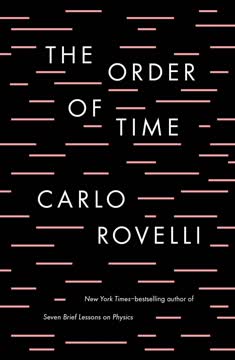Searching...
Top 10 Books on Slow Science and Thoughtful Inquiry
Explore 10 insightful books that delve into slow science, critical thinking, and the art of understanding our world more deeply.
Book Summaries
Rules for Focused Success in a Distracted World
Cal Newport's *Deep Work* emphasizes the importance of focused, distraction-free work in achieving meaningful results, making it essential for anyone interested in slow science and deep inquiry.
3 Key Takeaways:
- Deep work is the key to thriving in the modern economy
- Cultivate the ability to focus intensely without distraction
- Embrace boredom and resist the allure of constant connectivity
Science as a Candle in the Dark
Carl Sagan's *The Demon-Haunted World* is a passionate defense of scientific reasoning and skepticism, making it a vital read for those interested in slow science and critical inquiry.
3 Key Takeaways:
- Science as a Candle in the Dark: Illuminating Critical Thinking
- The Power of Skepticism: Combating Pseudoscience and Superstition
- The Demon-Haunted World: Understanding the Appeal of Irrational Beliefs
Carlo Rovelli's *The Order of Time* challenges conventional notions of time, inviting readers to reflect on their understanding of existence and the universe, aligning perfectly with slow science principles.
3 Key Takeaways:
- Time is not universal, but relative and variable
- The present moment is not a universal concept
- Past and future distinction emerges from entropy
The Art & Practice of The Learning Organization
Peter Senge's *The Fifth Discipline* is a foundational text on learning organizations, emphasizing the importance of systems thinking and continuous improvement in a slow science context.
3 Key Takeaways:
- Systems thinking: The cornerstone of learning organizations
- Personal mastery: Cultivating individual growth and vision
- Mental models: Challenging assumptions and fostering openness
A Primer
Donella Meadows' *Thinking In Systems* provides a foundational understanding of systems thinking, essential for anyone looking to engage deeply with complex issues in a slow science context.
3 Key Takeaways:
- Systems Thinking: A New Lens to Understand the World
- The Power of Feedback Loops in Shaping System Behavior
- Stocks and Flows: The Building Blocks of Systems
The Science Behind How We Got Here and Where We're Going
Vaclav Smil's *How the World Really Works* offers a data-driven perspective on global challenges, encouraging readers to think critically about the systems that shape our lives.
3 Key Takeaways:
- Energy: The Foundation of Modern Civilization
- Food Production: Eating Fossil Fuels
- Four Pillars of Modern Civilization: Ammonia, Steel, Plastics, and Cement
In *Letters From An Astrophysicist*, Neil deGrasse Tyson shares his insights on science and philosophy, encouraging readers to embrace a thoughtful, inquisitive approach to understanding the universe.
3 Key Takeaways:
- Science is about understanding, not just knowing facts
- The cosmic perspective offers awe and humility
- Skepticism and evidence are crucial in scientific inquiry
A Scientist's Guide to Life's Biggest Questions
Sabine Hossenfelder's *Existential Physics* tackles profound questions about existence and reality, encouraging readers to engage thoughtfully with the mysteries of the universe.
3 Key Takeaways:
- The block universe: Past, present, and future coexist
- Quantum mechanics defies intuitive explanations
- The universe's beginning and end remain speculative
How to Tell Science from Bunk
Massimo Pigliucci's *Nonsense on Stilts* provides a critical examination of science and pseudoscience, equipping readers with the tools to discern credible information in a world of noise.
3 Key Takeaways:
- Science is a complex endeavor, not a monolithic entity
- The demarcation problem: Distinguishing science from pseudoscience
- Media representation often distorts scientific understanding












